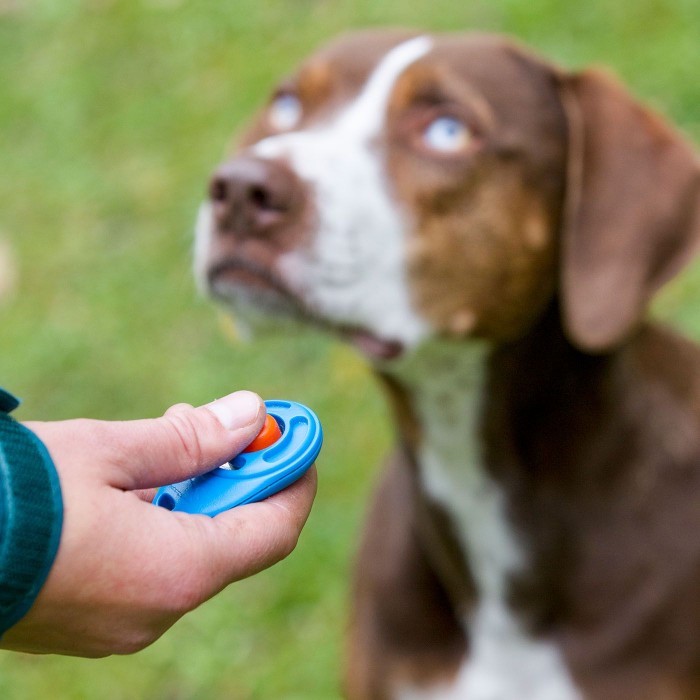How to Treat & Prevent Ear Mites in Dogs
Ear mites are microscopic parasites who like to live in a dog’s ears. They eat wax, oil, and other debris found inside the affected dog’s ears. It sounds like a good deal—the mites get food and a place to live and your dog gets clean ears. But there’s a hitch: These itchy bugs drive your dog nuts, and they’ll scratch and shake their heads incessantly to try and get rid of them. Read on to learn more about the signs and symptoms of ear mites in dogs and how to get rid of them quickly and efficiently with treatment from your veterinarian.
Ear Mites Defined
Ear mites are tiny, spider-like parasites that are found in dogs, cats, ferrets, and foxes. They don’t actually bite the animals, but they do cause irritation that makes your dog’s ears extremely itchy. Half the time when a dog has red, irritated ears, the Companion Animal Parasite Council says ear mites are to blame.
If your dog has ear mites, it’s often the case that other pets in your home do, too. Ear mites are highly contagious among animals, but not to people. You might have some temporary itching if mites come into contact with your skin, but Michele Pietrzak, DVM, medical director of VCA Met Vet West Animal Hospital in Pittsburgh, notes that humans can’t get an ear mite infestation from animals.
Signs Your Dog Has Ear Mites
It’s tough to spot ear mites in your dog’s ears because they’re nearly invisible. If you look hard, you might see them—search for white specks that move. It’s much easier though to notice other symptoms of ear mites in dogs, such as:
- Intense ear scratching
- Back-and-forth head shaking
- Dark brown crumbly residue (like coffee grounds) in the ears
- Painful sores on the head or outer ears from constant scratching
Ear mites can occur in any breed or at any age. But some dogs are more prone to ear mites than others. “We tend to see more ear mite infestations in young puppies and dogs who have been in group settings,” Pietrzak says. “Also, dogs who spend a lot of time outdoors are more likely to get them from laying on grass or concrete.”
How to Treat Ear Mites in Dogs
Cleaning your dog’s ears may provide some relief from discomfort, but home remedies won’t eliminate an ear mite infestation, Pietrzak says. Also, it’s easy to make a mistake when you self-diagnose your dog with what you think is ear mites.
Itchy ears in dogs is a symptom that can have many different causes. It could turn out to be another type of ear infection, so it’s best to talk to your veterinarian about your concerns. Only a vet can determine exactly what’s causing your pup’s symptoms and can treat ear mites in dogs.
How to Diagnose Ear Mites in Dogs
During an exam, your vet will look inside your dog’s ears to assess their health. Your vet will also analyze ear residue under a microscope. Once a diagnosis is made, the first step to treating ear mites in dogs is a thorough ear cleaning.
Your dog will also need prescription medication to treat an ear mite infestation. Some medications are daily ear drops while others are topical products you use one a month, Pietrzak says.
You should know that ear mites require long-term treatment. Adult ear mites can live up to two months. They constantly reproduce—VCA Hospitals report that a female can lay up to five eggs a day. So even if the adults die off, new mites will emerge because no medication can kill the eggs.
“Treating the ears only once or for only one or two weeks simply won’t do it,” Pietrzak says. “More mites are always hatching. To really solve the problem, you need several months of treatment.”
Your vet will also look for any underlying bacterial or yeast infections or for scratches that may have become infected. If your dog has an infection, your vet will prescribe antibiotics or antifungal medications to treat it.
Preventing Ear Mites in Dogs
If you have multiple pets in the home, there’s a good chance more than one of them has ear mites. It’s usually best to treat all pets for ear mites at the same time to avoid reinfection. Also, it’s important to wash all bedding and disinfect common areas of your home. Otherwise, mites can live on surfaces and spread to other pets.
It’s a good idea to regularly clean your dog’s ears too. Wash them at home or ask your groomer to do it. Also, talk to your veterinarian about prescription flea and tick medications that double as ear mite preventatives, Pietrzak says.
Ear mites can make your dog itchy, scratchy, and miserable. Talk to your vet if you see ear mite symptoms so you can get a treatment that eliminates them. Soon your pup will be feeling better and you’ll be rid of ear mites for good.








